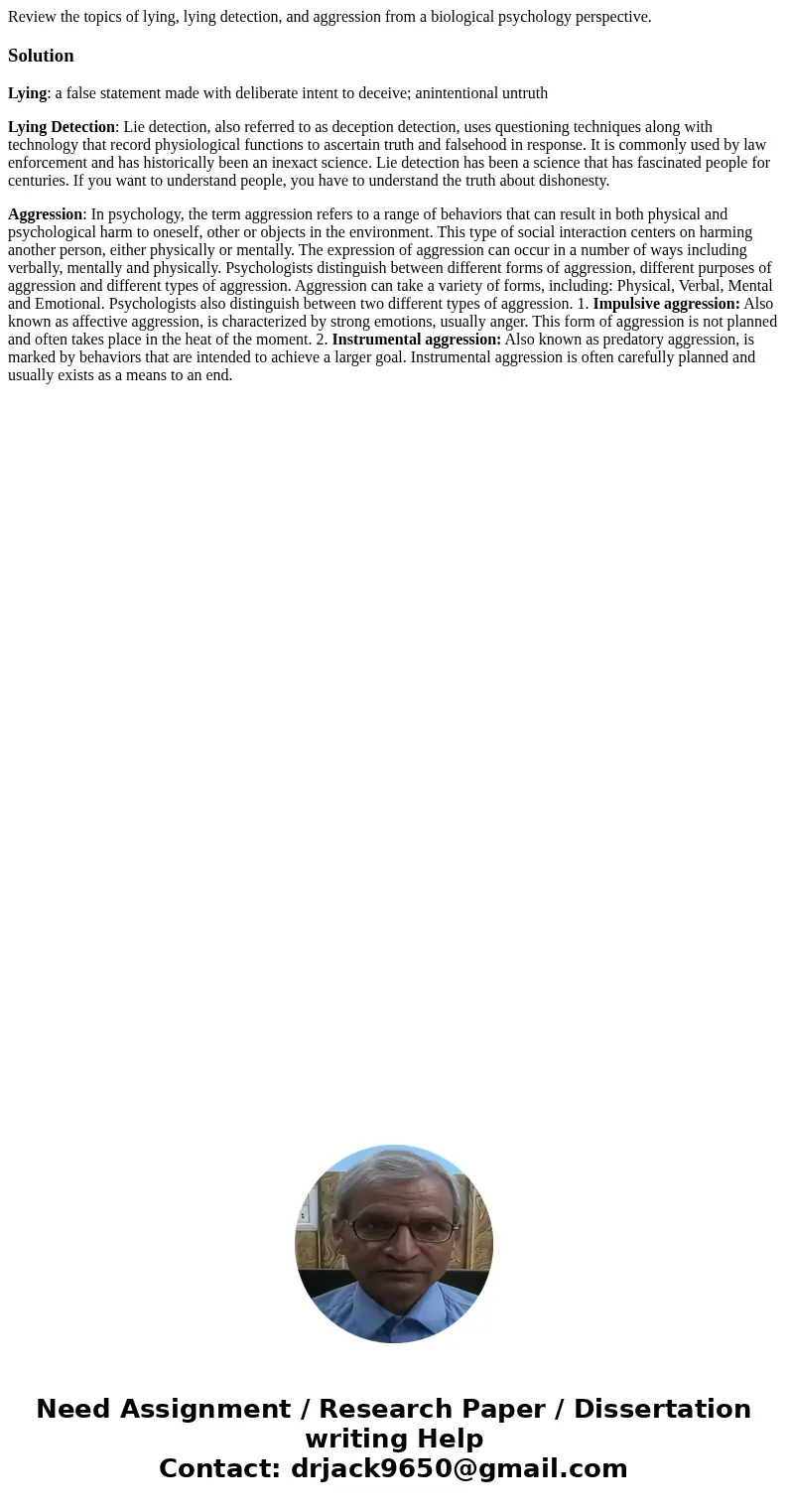Review the topics of lying lying detection and aggression fr
Review the topics of lying, lying detection, and aggression from a biological psychology perspective.
Solution
Lying: a false statement made with deliberate intent to deceive; anintentional untruth
Lying Detection: Lie detection, also referred to as deception detection, uses questioning techniques along with technology that record physiological functions to ascertain truth and falsehood in response. It is commonly used by law enforcement and has historically been an inexact science. Lie detection has been a science that has fascinated people for centuries. If you want to understand people, you have to understand the truth about dishonesty.
Aggression: In psychology, the term aggression refers to a range of behaviors that can result in both physical and psychological harm to oneself, other or objects in the environment. This type of social interaction centers on harming another person, either physically or mentally. The expression of aggression can occur in a number of ways including verbally, mentally and physically. Psychologists distinguish between different forms of aggression, different purposes of aggression and different types of aggression. Aggression can take a variety of forms, including: Physical, Verbal, Mental and Emotional. Psychologists also distinguish between two different types of aggression. 1. Impulsive aggression: Also known as affective aggression, is characterized by strong emotions, usually anger. This form of aggression is not planned and often takes place in the heat of the moment. 2. Instrumental aggression: Also known as predatory aggression, is marked by behaviors that are intended to achieve a larger goal. Instrumental aggression is often carefully planned and usually exists as a means to an end.

 Homework Sourse
Homework Sourse